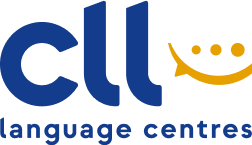Learning a foreign language
Learn English
How can I learn English or improve my level?
- Why learn English?
- Methods for learning English.
- English for beginners
- Improve and progress in English
- The organisation of an English course program.
- Learning English for a child (ages 4 to 12)
- Learning English for teenagers (ages 12 to 18)
- Learning English for adults
- Learn English online.
- 10 tips for learning English fast
- Want to learn or improve your foreign language skills?
Whether you’re learning English from scratch or perfecting your skills, the aim of learning English is to become fluent, understand a conversation or have access to English-language literature and press.
Speaking, understanding, reading and writing English makes so many things possible! English is essential for traveling, studying and working. English is one of the world’s leading languages, enabling exchanges between people all over the world. Learning English is great fun. English gives you access to the whole of Anglophone culture, which abounds in films, TV series, literary works, press and media. With the right method and the right advice, you can learn English quickly and easily.
There’s no age limit for learning English. Ideally, you should start as soon as possible. If you haven’t had the chance, it’s never too late to take the plunge! Whether you’re a child, a teenager or an adult, there are a number of methods to suit your time, your goals and your use of English.
Why learn English?
English is one of the most widely spoken languages in the world. It is indispensable as a reference language for commercial, scientific and diplomatic exchanges, etc…
The English-speaking world abounds in publications, cultural creations and media outlets. Understanding English will give you direct access to this whole world of creations and this immense knowledge base.
There are many reasons why you need to speak and master English: higher education, the desire to travel or expatriate, exams, job interviews, or to do your job to the best of your ability.
Whatever your reason or motivation, learn English to dare to speak it! The aim is to be able to speak English fluently and without searching for words, which corresponds to an English B2 level.

Methods for learning English.
What are the different ways of learning English?
There are many ways to learn English:
Books or websites packed with English vocabulary and grammar exercises
Applications on your smartphone
English e-learning platforms or MOOCs
Private or group lessons in English
Online English courses for individuals or groups
English courses combined with sports, leisure and educational activities
Intensive English courses for 1 or 2 weeks
Immersion trips of varying lengths
All these methods can be classified into 2 groups:
- self-learning methods ;
- methods with professional support.
At first glance, self-study is an attractive option! It’s often free or inexpensive. I don’t have to stick to fixed or regular working hours. I’m independent and I do what I want when I want. It’s very attractive, but extremely difficult to maintain over time. This requires a great deal of discipline, and these methods lack oral language practice.
Accompanied methods are more time-consuming. You’ll be accompanied by experienced English teachers, coaches and a pedagogical team who will help you practice the language and understand all the grammatical rules. They adapt the method to your level and your objectives.
You’re going to find it hard to learn. You’ll find it easier to overcome these difficulties with support. You’ll avoid giving up on learning English. Group courses offer a motivational bonus, with the energy of other students proving highly communicative.
Learning English follows a progression in levels of English knowledge.
- English level A0: absolute beginner.
- English level A1: elementary user.
- English level A2: elementary user or false beginner.
- English level B1: independent user.
- English level B2: fluent English – independent user.
- English level C1 or advanced English level – experienced user.
- English level C2: bilingual – experienced user.
English for beginners
How do I start learning English?
You are an A0 absolute beginner or A1 elementary user. Start with the basics!
This is the first and most arduous stage, but once you’ve passed it, you’ll be able to evolve and progress to more interesting levels.

Improve and progress in English
You already have some knowledge of English and would like to improve to become fluent or bilingual.
The first step is to define your level of English so that you can begin your progression at the right level.
The easiest way is to take an English level test. Take a self-assessment test by reading the criteria for each level, or take an online English test.

The organisation of an English course program.
How do you start your English learning program? Learning English takes time, motivation, regularity and effort.
First of all, set aside some time and plan your learning. You need time to learn regularly over a long period of time. Plan your schedule and activities so as to free up the necessary time, and choose a learning pace that suits your family and professional life.
Next, adapt your environment to increase your exposure to the English language: listen to the radio or podcasts in English, watch films and series in English VOST, try to find people with whom to chat or interact in English. Try Irish pubs if you like soccer!
Finally, take an English course and learn English with an experienced teacher, guided by a pedagogical method. It’s the guarantee of success.

Learn English
for a child (4-12 years)
Children have an immense talent for perceiving and pronouncing different languages. Activating these skills at an early age will make it much easier to learn English later on.
Learning English can start very early. Many solutions are available. We start by exposing children to English via mobile or tablet applications. All children’s films and series are available in English. Youtube is packed with English-language children’s channels.
Resorting to too many screens is not ideal, and these solutions will be insufficient for quality learning. At school, the child may benefit from activities in English, English lessons and sometimes even an immersion class.
If these activities are not available in English at school, quality English learning is available through these solutions:
- group courses on Wednesdays or Saturdays;
- private or individual lessons;
- English courses during the school vacations, combined with other fun activities.
These English courses are also available online in virtual classrooms via videoconferencing. This is very practical, as it cuts down on time wasted driving the children around.
Learn English
for a teenager (ages 12-18)
Becoming bilingual or trilingual is now a must! Along with Dutch, English is one of the most important languages in a teenager’s school career.
The high school offers language courses, but your teen may not have access to English as a 2nd language or opportunities to practice a 3rd language.
English courses for teenagers in addition to school mainly meet 2 needs:
- provide support and assistance for students with learning difficulties in English;
- provide courses for students who don’t take English at school.
There are many solutions:
- group English lessons in the classroom;
- more flexible private lessons with a dedicated teacher;
- language courses during the school vacations;
- immersion stays in England, Ireland, Scotland… and why not the United States for the lucky ones.
These English courses are also available online in virtual classrooms via videoconferencing. It’s very practical, as it cuts down on time wasted driving teenagers around.
Learning English for adults
English courses are the most effective way to learn English, especially if you have a busy professional schedule.
Learning English requires a significant investment of time. The support of a teacher and the motivation of the group ensure that this time is used efficiently. You’ll be able to measure your progress in concrete terms.
Avoid methods that promise miracles. You’ll be wasting a lot of time with little to show for it.
It’s important to define your objectives and the reasons for learning English. Not everyone needs to become bilingual. Maybe you just want to understand your colleagues or take part in a meeting in English.
To help you, you can use diagnostic tools to define your needs and objectives for learning English. This takes into account your time constraints and availability, your level of English and helps you define the skills you want to acquire in English.
The first step is to test your level of English to determine which type of course you should start with.
Learn English online
Today, there are many sites, applications and platforms for self-study of English online. That means motivation, effort, discipline and regularity!
Now you can also learn online with the help of a teacher. These English courses are available as group or individual courses. This takes place in virtual classrooms using video-conferencing tools.
Very practical! You have all the advantages of being accompanied by a teacher without the time-consuming trip to the language school. You can also easily take your courses at the office or at home during your lunch break.

10 tips for learning English fast
What are the 10 secrets to learning English as quickly as possible?
- Take note of all the new English words and expressions you discover.
- Talk to native English speakers: English, Irish, Americans, Canadians, South Africans, Australians and many more.
- Read everything you can in English: magazines, websites, press and literature.
- Subscribe to English-language podcasts and YouTube channels on a subject you’re passionate about.
- Spend a few weeks in an English-speaking country or, failing that, take frequent city trips to London, Dublin or New York.
- Ask as many questions as you can to make sure you understand everything we explain.
- Start with the basics of English and work your way up.
- Learn in a group.
- Get support from a teacher, coach or educational team.

Want to learn or improve your foreign language skills?
CLL is Belgium’s largest language school. Tens of thousands of adults, children and teenagers have been trained using CLL’s unique methods.
The CLL teaching team offers tailor-made support for each student, enabling them to dare to speak the language of their choice.
Over 17 languages are taught by a team of experienced teachers.


